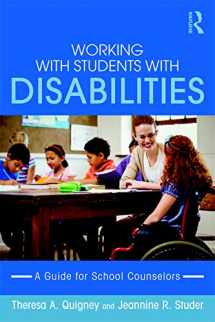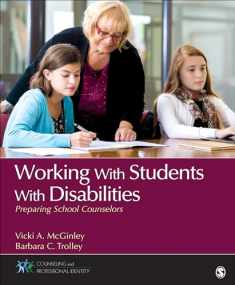
Working with Students with Disabilities
Book details
Summary
Description
Like no other book available, Working with Students with Disabilities: A Guide for School Counselors provides comprehensive coverage of school counselors’ roles in special education and working with students with disabilities and connects that coverage to both the ASCA national model and CACREP standards.
In Working with Students with Disabilities, school counselors will find thoughtful analyses of the legal and regulatory basis for many of the practices in special education, including an overview of pertinent laws including the Individuals with Disabilities Education Improvement Act and Section 504 of the Rehabilitation Act. They’ll gain an in-depth understanding of the leadership role that school counselors should play in supporting students, teachers, and families, and they’ll also come away with an understanding of the common challenges―like bullying, cyberbullying, and successful transitioning from high school to adult life― to which students with disabilities may be more vulnerable, as well as less common challenges such as behavioral difficulties, autism spectrum disorders, and many more.


We would LOVE it if you could help us and other readers by reviewing the book
Book review




